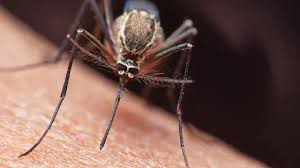
Nigeria is set to begin local production of insecticide-treated mosquito nets as part of renewed continental efforts to eliminate malaria by 2030. The move marks a major shift from decades of reliance on imports and comes as African leaders, health experts, and global partners rally under the Big Push initiative to accelerate malaria elimination across the continent.
The commitment was reinforced at a high-level meeting on malaria elimination in Abuja, themed “Harnessing Africa’s Central Role for the Big Push Against Malaria.” Organized in collaboration with the Roll Back Malaria Partnership (RBM), the African Leaders Malaria Alliance (ALMA), and supported by the UK Foreign, Commonwealth and Development Office (FCDO), the meeting brought together African health ministers, experts, and global stakeholders. Discussions centered on political leadership, sustainable financing, local innovation, community mobilization, integrated healthcare and stronger data systems.
Coordinating Minister of Health and Social Welfare, Prof. Muhammad Ali Pate, revealed that the world’s largest manufacturer of mosquito nets is establishing a plant in Nigeria, ending decades of dependence on imports for one of the country’s most vital malaria prevention tools.
“For 20 years, more than 600 million nets have been distributed in Nigeria. This is textile, but it was not produced locally. That must change. With new investments, we are beginning to domesticate our response, retain economic value, and create jobs,” Pate said.
He also disclosed that a facility near Abuja now has the capacity to produce 600 million malaria test kits annually under agreements with European partners, describing such initiatives as crucial to reducing external dependency and tailoring responses to Nigeria’s realities.
“For 70 to 78 years, Nigeria has had a malaria programme, long before independence, yet we still carry a third of the global malaria burden.
“Malaria is fundamentally an African problem, 90% of the global burden is here. Unless we own it and finance it ourselves, no one else will solve it for us,” he added.
National Malaria Elimination Programme (NMEP) Coordinator, Nnenna Ogbulafor, said the new local production of mosquito nets would not only strengthen Nigeria’s elimination efforts but also help mobilize political will and lower costs.
“This is about galvanizing government and ensuring that all hands are on deck. The government will sit up in areas where it has to work, and you and I will also sit up where we have to,” she said.
While lauding current efforts by stakeholders, Nigeria’s Minister of State for Health, Iziaq Salako, raised concerns about the growing insecticide resistance among mosquitoes, which threatens the effectiveness of indoor spraying interventions.
“While progress has been made in the fight against malaria, our current trajectory is not enough to meet our goal of ending malaria on the continent by 2030,” Salako warned.
Also speaking, Regional Director for West Africa at Africa CDC, Kokou Alinon, praised Nigeria’s leadership, noting that Africa CDC has integrated malaria into primary healthcare systems across member states and is advancing vaccine trials.



